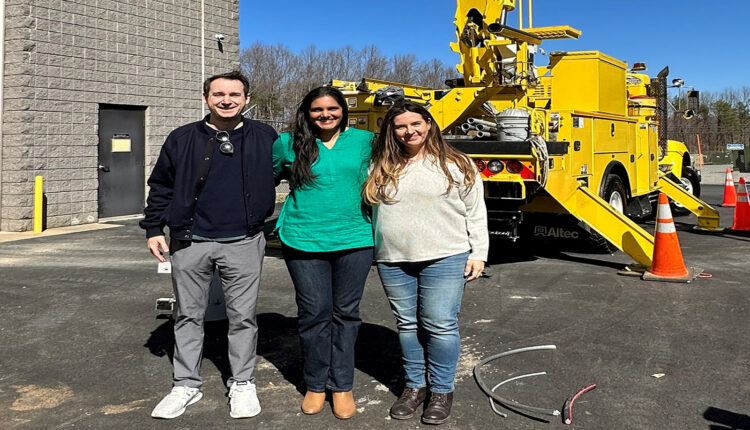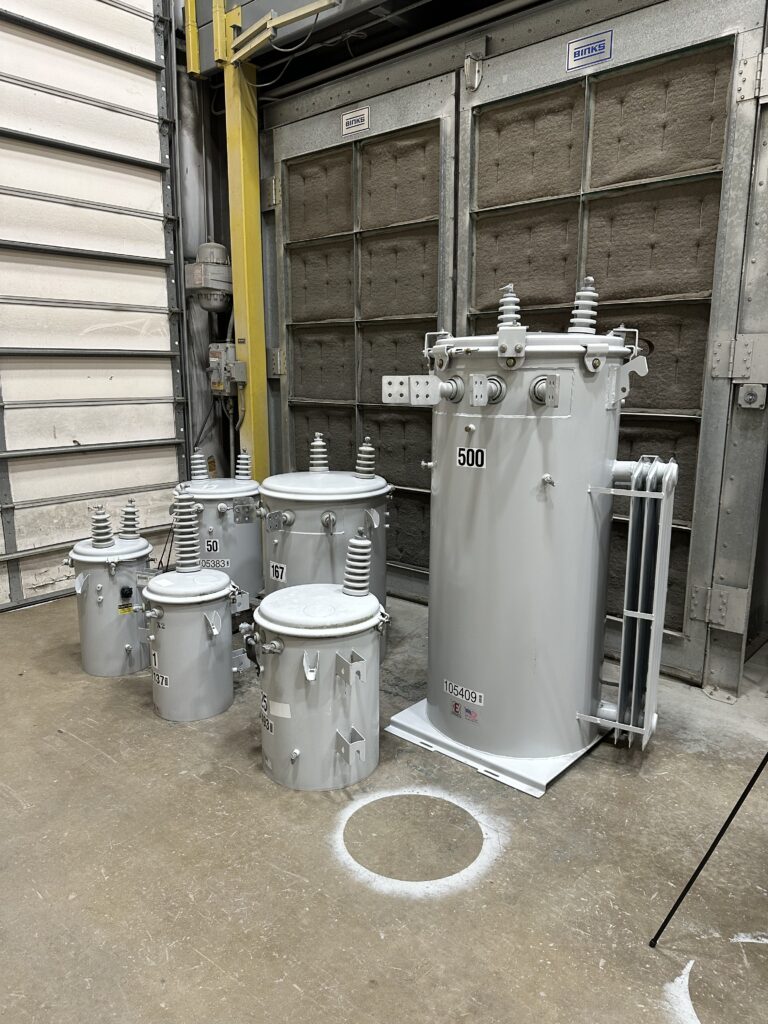
DOE Rule Sparks Concerns with Small Electric Cooperatives
Last month Advocacy staff visited the Rappahannock Electric Cooperative (REC) in Fredericksburg, VA. REC is a member-owned electrical distribution utility, servicing 17,000 connections in 22 Virginia counties. By nature, electric cooperatives are non-profits and therefore fall under the definition of small businesses. The main purpose of Advocacy’s visit was to learn about distribution transformers, the role they play in electrical distribution, and what impacts electrical cooperatives will face from the U.S. Department of Energy (DOE)’s proposed rule to amend energy conservation standards for distribution transformers.
On January 11, 2023, DOE published a proposed rule to amend energy conservation standards for distribution transformers. The proposed rule impacts three categories of distribution transformers and requires that these products use amorphous steel cores as opposed to the current grain-oriented steel cores. During Advocacy’s visit, REC showed Advocacy several types and sizes of transformers. Representatives from the cooperative spoke about challenges they would face if DOE’s rule were to be finalized as proposed. One challenge they highlighted is that amorphous steel cores are heavier and larger than current cores. Thus, transformers would be heavier and larger overall. REC representatives mentioned that it would not be a simple switch-out to replace current distribution transformers with these new amorphous steel core transformers. They would be required to purchase new poles and possibly new lines and other equipment. Some small businesses estimated that new poles would cost anywhere from $500-$1400 depending on labor, equipment, and any shortages or delays. For REC, which maintains over 94,500 transformers, this could amount to a significant cost that the not-for-profit co-op would not be able to absorb.
Representatives also spoke about extreme shipping delays and supply chain shortages. They cited that within the industry some manufacturers are placing limits on the number of transformers that can be ordered because they simply cannot keep up with the demand.
On March 14, 2023, Advocacy held a small business roundtable on the proposed rule. REC and several other small business representatives attended. During the roundtable attendees spoke about market competition issues due to their being only one domestic manufacturer of distribution transformer cores. Other attendees spoke about indirect impacts they would face because of delays to transformer connections.

Distribution transformers at the Rappahannock Electric Cooperative in Fredericksburg, Virginia.
DOE stated that its rule aims to address inefficiencies in transformers where there is little to no-load on the transformer known as a “no-load loss.” The rule addresses this loss by setting energy efficiency standards that can only be met by switching to an amorphous steel core. In speaking with REC and other small businesses, Advocacy learned that amorphous steel cores degrade faster over time and are more fragile and susceptible to damage if there is a significant weather event. This would result in additional high costs because they would need to be changed out more frequently. REC also demonstrated that amorphous steel cores cannot handle an overload situation as well as the current grain-oriented steel cores. Using modeling scenarios, they showed how as more users demand larger amounts of electricity throughout the day there are less no-load times. Instead, there may be times of overload. For example, more users are charging EVs in addition to running household appliances, therefore transformers are more likely to become overloaded. Current transformers can perform up to 125 percent of their capacity rating, but some small businesses estimated that amorphous steel core transformers can only perform at up to 80 percent of their capacity rating.
REC’s demonstrations, simulations, and data were extremely helpful to Advocacy staff in learning about the impacts the rule would have on small electrical cooperatives. On March 27, 2023, Advocacy filed a public comment letter on DOE’s proposed rule. Within the comments, Advocacy shared several concerns communicated by REC and other small entities. Advocacy urged DOE to consider all the impacts the rule will have on small entities and properly quantify them in its Regulatory Flexibility Act Analysis. Advocacy also asked DOE to reconsider whether the rule was necessary as it did not meet the statutory requirement that the rule be economically justified under the Energy Policy Conservation Act. Advocacy’s full comments on the proposed energy efficiency standards are available.
